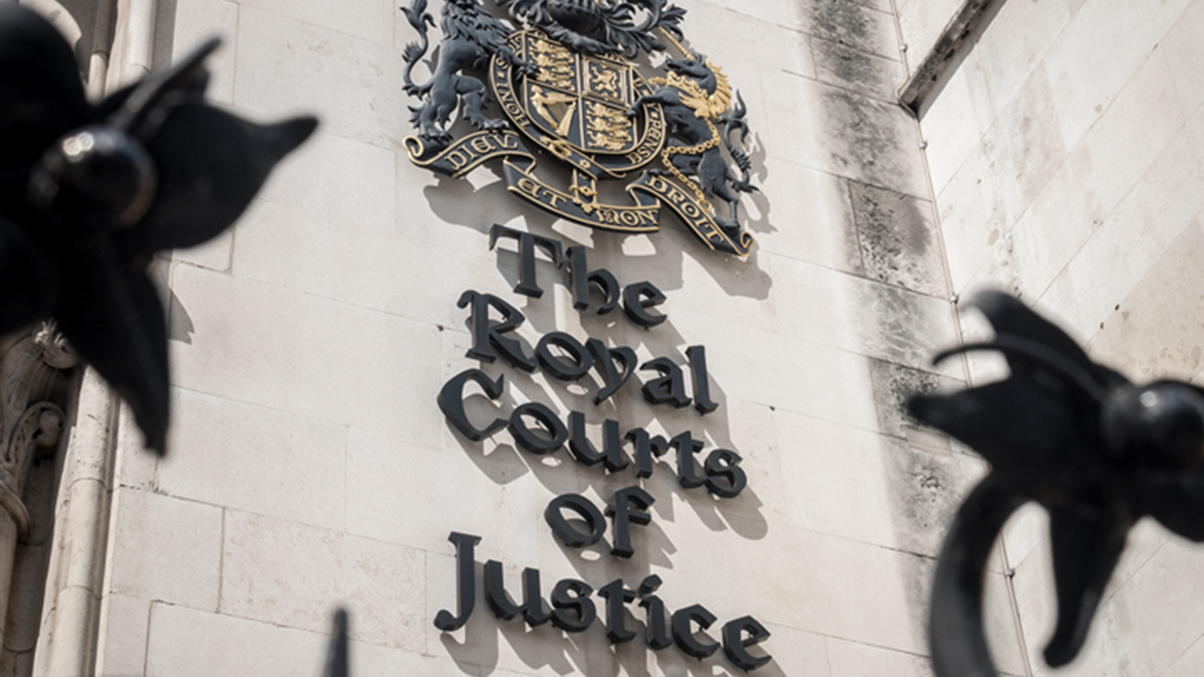The High Court ruled in favour of the defendants in consideration of a third-party debt order seeking to enforce against an unsuccessful appellant’s pension. Stewarts (instructing Calum Mulderrig of 3VB) acted for the successful Guy Parties on the application, part of the saga between Mr and Mrs Brake and the Guy Parties that has generated more than 30 reported judgments. The judge dealing with the related employment proceedings commented that “the litigation between these parties is beginning to make Jarndyce v Jarndyce look like a fast-track case.”
The recent decision of His Honour Judge Matthews in Brake v Guy and others (Third Party: James Hay Pension Trustees Limited) [2022] EWHC 1746 (Ch) (Brake v Guy) provides further guidance to steer judgment creditors through the minefield of potential issues when enforcing against a debtor’s pension by way of a third party debt order (TPDO) under CPR 72.
In relation to any individual made bankrupt on a petition presented on or after 29 May 2000, the debtor’s pension under an approved scheme does not (with two exceptions) form part of the bankrupt’s estate and is therefore not available to their creditors. It is also well established, following the Court of Appeal’s decision in Horton v Henry [2016] EWCA Civ 989 that neither the court nor the trustee in bankruptcy can compel the bankrupt to draw down or otherwise realise their pension rights.
Because an individual’s pension fund may amount to a very significant asset, it is advantageous for a judgment creditor to enforce against a debtor’s pension before they are made bankrupt. Once bankrupted, the asset is likely to be protected against enforcement. Enforcement by way of TPDO is not without its difficulties, though, as Ian Gatt QC explains.
Background
The Brakes had appealed against His Honour Judge Matthews’ judgment following a trial of issues relating to alleged privacy and confidentiality rights. The appeal was dismissed and the Brakes ordered to pay the Guy Parties’ costs, including an interim payment of £70,000. The Brakes failed to pay. The Guy Parties applied to the Court of Appeal for a TPDO in respect of Mr Brake’s pension with the James Hay Partnership (JHP), said to be worth £89,000. Lord Justice Lewison made an interim TPDO on 4 April 2022, served on JHP and subsequently on Mr Brake.
JHP initially indicated that it was to be a neutral third party, but subsequently served a 13-page “Position Statement” shortly before the hearing to determine whether the interim order should be made final, causing the hearing to be adjourned.
JHP raised a number of legal objections to the making of the final TPDO:
- they contended that the wrong legal entity had been identified as the third party;
- they contended that no debt was owed to Mr Brake;
- they raised issues as to the duties the third party owed to Mr Brake which, they contended, meant the TPDO should not be made final.
Additional arguments were raised on Mr Brake’s behalf.
The judgment makes clear a complex raft of provisions governing Mr Brake’s pension including the James Hay iSIPP Guide, the James Hay Personal Pension Plan Scheme Rules, the James Hay Personal Pension Plan Trust Deed, the James Hay Online Terms & Conditions for Members and a Technical Guide. Each case will turn upon the relevant scheme documentation and the extent to which the debtor/pensioner has already made decisions in relation to their pension.
Correct identity of the third party
The interim TPDO had been made against JHP. However, JHP was a trading name for a number of companies within the James Hay group. JHP volunteered that the correct third party was James Hay Pension Trustees Limited (JHPTL). The judge was content to allow amendment of the application as no-one had been misled or prejudiced by the misnomer. This highlights the importance of seeking to identify the correct legal entity.
JHPTL contended that a final order would have to be made against itself and James Hay Administration Company, the scheme administrator, on the basis that JHPTL’s only role under the terms of the trust deed was to hold the pension fund and deal with it as directed by the administrator. JHPTL argued that all decisions were taken by the administrator and so the application was not properly constituted.
The judge rejected that submission. JHPTL was required to comply with a lawful court order, and as Mr Brake had elected “flexi-access drawdown” under the Scheme Rules (so he could elect to withdraw any amount over any period as an income withdrawal), there was no discretion for the administrator to exercise. This was relevant in relation to JHPTL’s argument that it had a fiduciary duty to act in Mr Brake’s best interests. As JHPTL had no discretion, it was unconcerned with the tax consequences of the election, and the regulatory requirements imposed on it by Financial Conduct Authority’s Principles for Business and by the Conduct of Business Sourcebook Rules were irrelevant.
Existence of a debt
A TPDO evidently requires a debt due from the third party to the judgment debtor. As the judge identified in paragraph 44 of the judgment:
“The test for whether there is a debt due or accruing due for this purpose has been judicially stated to be whether or not the creditor could immediately and effectually sue… , or whether there is some contingency or condition precedent that has not yet been satisfied …. The important thing to notice is that a judgment creditor cannot by using the third party debt order procedure be put in a better position than the judgment debtor was.”
The issue as to whether there was a “debt” for the purposes of a TPDO when the debtor had an interest in a pension was considered in Blight v Brewster [2012] EWHC 185 (Ch). In that case the debtor had a right to elect to draw down 25% of his pension as a tax free sum. Gabriel Moss QC, sitting as a deputy judge, concluded that that right “was clearly unviable taken by itself, because the right to elect the drawdown was not a debt. A debt would only arise if the election were made.” He went on to consider whether the court should make an order requiring the debtor to make an election to draw down the 25%, and concluded he should whereupon a debt would arise which could be attached.
In Brake v Guy, the judge recognised he should consider whether there was a debt due to Mr Brake based on the terms of his pension with JHPTL and their agreement, and not what the position may have been in other cases. He concluded that as Mr Brake had previously elected to take “flexi-access drawdown” under the Scheme Rules, he could now elect to withdraw any amount over whatever period he chose as an income withdrawal. The Guy Parties accepted that there was no debt due to Mr Brake until an election was made by him (or on his behalf) to draw down all or part of the remaining funds.
The judge concluded that when that election was made there would be a “debt”. It did not matter that the pension was invested in a range of investments, and was not in cash; or that the exact amount owed to him could not be known until the tax liability and any costs had been deducted.
The judge appears not to have been troubled that the “debt” would not come into existence until Mr Brake made the required election and so there would have been no debt at the time the interim TPDO had been made. That point had not troubled the deputy judge in Blight v Brewster, who had concluded that it was unnecessary to appoint a receiver by way of equitable execution and require the debtor to delegate his power of withdrawal. The deputy judge pragmatically restored the TPDO to take effect from the moment that the debt created by the election to take the lump sum became effective.
Ancillary orders
The Guy Parties sought an injunction under section 37 Senior Courts Act 1981 requiring Mr Brake to exercise his right to require the pension fund to be liquidated and paid out, and/or to delegate that right to the Guy Parties. In either case, Mr Brake would then have a debt due to him from JHPTL. The court could then make a TPDO in respect of that debt.
Applying Blight v Brewster, and Bacci v Green [2022] EWHC 486 (Ch), the judge concluded it was just and convenient to grant the relief sought. In Blight, the deputy judge had observed: “[d]ebtors … should not be allowed to hide their assets in pension funds when they had a right to withdraw monies needed to pay their creditors. … [Counsel for the debtor] … suggested that public policy requires pensions to be treated as exceptional when it comes to the execution of judgments on the basis of the special treatment under bankruptcy law. In my judgment, that suggestion is erroneous. … A judgment debtor in my view cannot have the benefits of bankruptcy without its burdens.”
In Brake v Guy, the judge rejected Mr Brake’s argument that an injunction was not just and convenient because requiring him to elect draw down on the balance of his pension fund would incur a tax liability. He commented that enforcement against assets often requires the debtor to incur liabilities. However, if the amount of tax would be so great that there was no real benefit to the judgment creditor, the court might well decide not to order the sale.
The judge also rejected the argument that Blight and Bacci were distinguishable as cases where the debtor had acted fraudulently. He saw no reason to distinguish cases based upon the nature of the underlying liability, agreeing with Gloster JA, in Re Esteem Settlement 2001 JLR, 540, where she agreed: “It is not the policy of the law or the practice of the Courts to differentiate between debts according to a moral standard… the law does not differentiate in a bankruptcy between claims arising out of fraud and those arising out of ordinary trade.”
The judge also rejected Mr Brake’s argument that any sums obtained under the TPDO (estimated to be £40,000) would be “a drop in the ocean” in comparison to his overall liabilities to the Guy Parties. He concluded that the proper comparison was not of the amount to be recovered with the total unsatisfied costs orders in all the different claims but instead with the costs order in the appeal (£70,000 against £40,000).
Conclusion
His Honour Judge Matthews concluded that it was just and convenient to make an injunction ordering Mr Brake to exercise his right to draw down his remaining pension entitlement from the third party. He had been ordered to pay the Guy Parties’ costs of his unsuccessful appeal. Mr Brake had an asset which can be realised for the Guy Parties’ benefit; the authorities indicated that it did not matter that the asset concerned was a pension entitlement. Although it was not clear how much would become payable to Mr Brake, because the tax and administration costs deductible had not been calculated, the judge was satisfied that a significant proportion of the costs liability of £70,000 would be satisfied by the making of a final TPDO in relation to the debt that will become due from the third party upon the exercise by Mr Brake of his right.
The judge directed the Guy Parties to consult JHPTL as to the form of documentation and information required for Mr Brake to exercise his right. Mr Brake was required to provide to the Guy Parties all such information as JHPTL may reasonably require. The Guy Parties were to draft the relevant documentation which Mr Brake was ordered to execute forthwith and return to the Guy Parties for transmission to JHPTL.
In the event Mr Brake failed to execute the documentation forthwith, or to transmit it to the Guy Parties, then the judge directed that a partner in the firm of solicitors representing the Guy Parties was authorised under section 39 of the Senior Courts Act 1981 to execute it on his behalf. Upon the implementation of the exercise of the right by Mr Brake, JHPTL was (after deduction of any required tax and fees) to pay to the Guy Parties the lesser of the sum of £70,569, or all remaining sums in Mr Brake’s pension fund.
Stewarts Litigate
Stewarts has launched a ground-breaking after the event (ATE) insurance facility with Arthur J. Gallagher Insurance Brokers Limited. ‘Stewarts Litigate‘ is designed to work alongside our alternative funding agreements. The facility provides our commercial disputes clients with rapid access to comprehensive ATE insurance at pre-agreed market leading rates. The facility can provide coverage of up to £4 million in three business days and up to £18 million within ten business days.
Find out more about Stewarts Litigate here.
This communication has been authorised by Arthur J Gallagher Insurance Brokers Limited for the purpose of s21 of the Financial Services and Markets Act 2000
You can find further information regarding our expertise, experience and team on our Commercial Litigation page.
If you require assistance from our team, please contact us or alternatively request a call back from one of our lawyers by submitting this form.
Subscribe – In order to receive our news straight to your inbox, subscribe here. Our newsletters are sent no more than once a month.





